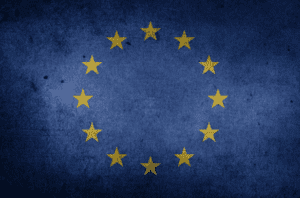Most people in Scotland didn’t want it, but it’s happening: the UK has voted to leave the European Union. Take a look at 4 things this truly seismic result could mean for Scotland.
1. Another independence referendum
First minister Nicola Sturgeon has, in the past, come close to suggesting a second independence referendum should Britain vote for Brexit. This week, Sturgeon will meet European Commission president Jean-Claude Juncker in Brussels to discuss the outcome of the referendum.
It’s thought Sturgeon will stress to Juncker that Scotland wants to remain inside the EU, potentially as an independent country. It’s been reported that Sturgeon is gearing up for a second vote, should Westminster approve it.
2. A complete block on leaving
It’s also been suggested that the Scottish parliament could completely block the legislation necessary for the UK to part from the EU. Sturgeon has said: “If the Scottish parliament is judging this on the basis of what’s right for Scotland, then the option of saying we’re not going to vote for something that’s against Scotland’s interests, that’s got to be on the table. You’re not going to vote for something that is not in Scotland’s interests.”
With 62% of people in Scotland backing Remain and only 38% backing Leave, Sturgeon could argue that she has the will of the people on her side. However, it’s unclear whether the Scottish parliament really does have the necessary authority to veto Brexit.
3. Dual citizenship?
Some people are thinking of taking dual citizenship with Ireland, which has been an EU member since the 1970s.
Theoretically, if there is a second independence referendum, dual citizenship could be an option in Scotland too. The Scottish government has said that:
- British citizens born in Scotland would be automatic citizens of Scotland.
- British citizens “habitually resident” in Scotland at the time of independence will also be automatically considered.
4. More support for business
Scotland is well-known for its emerging industries – gaming, new energy and life sciences, to name just a few. In the wake of Brexit, the government has moved to reassure businesses they have a bright future. Cabinet secretary Keith Brown has said: “I have been engaging extensively with the business community in Scotland over recent days to emphasise that, as of now we are still firmly in the EU. Trade and business should continue as normal and we are determined that Scotland will continue now and in the future to be an attractive and a stable place to do business.”
What are your thoughts on the implications of Brexit for Scotland? Let us know.
Thinking of taking out a Scottish Protected Trust Deed? Read our Scottish debt solutions FAQ guide and get top tips and financial insight on our info hub.
